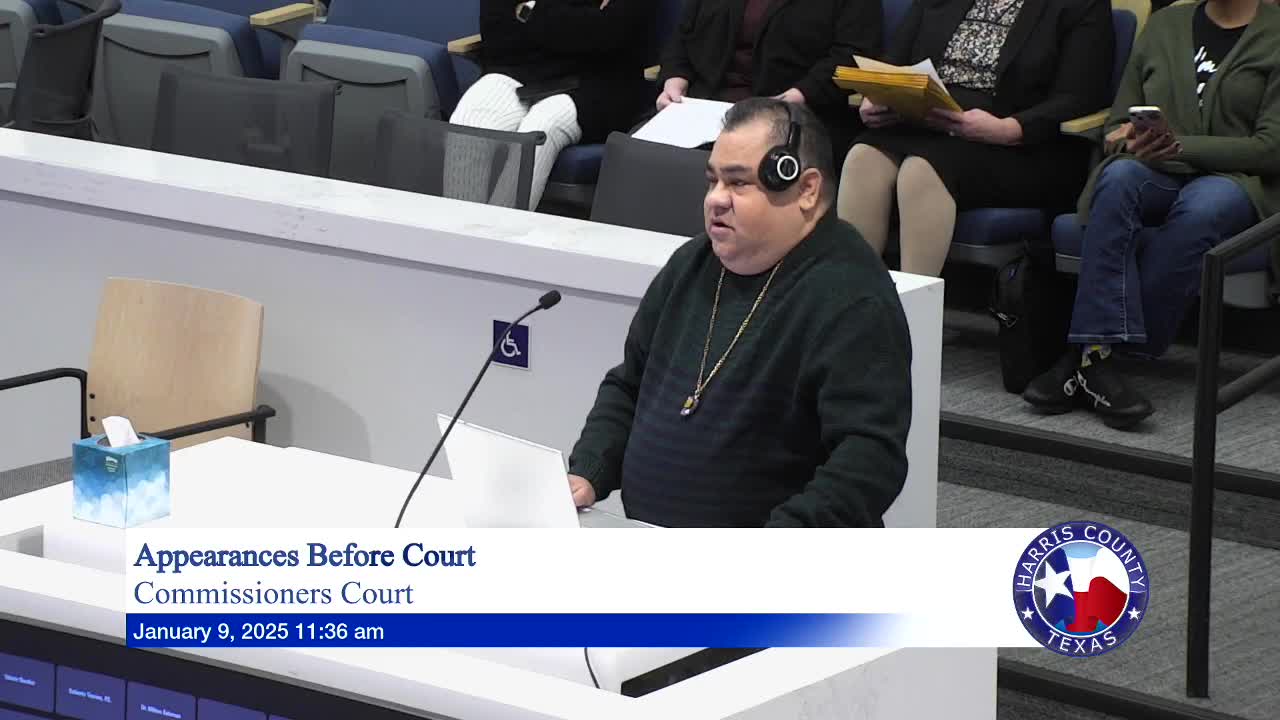Article not found
This article is no longer available. But don't worry—we've gathered other articles that discuss the same topic.
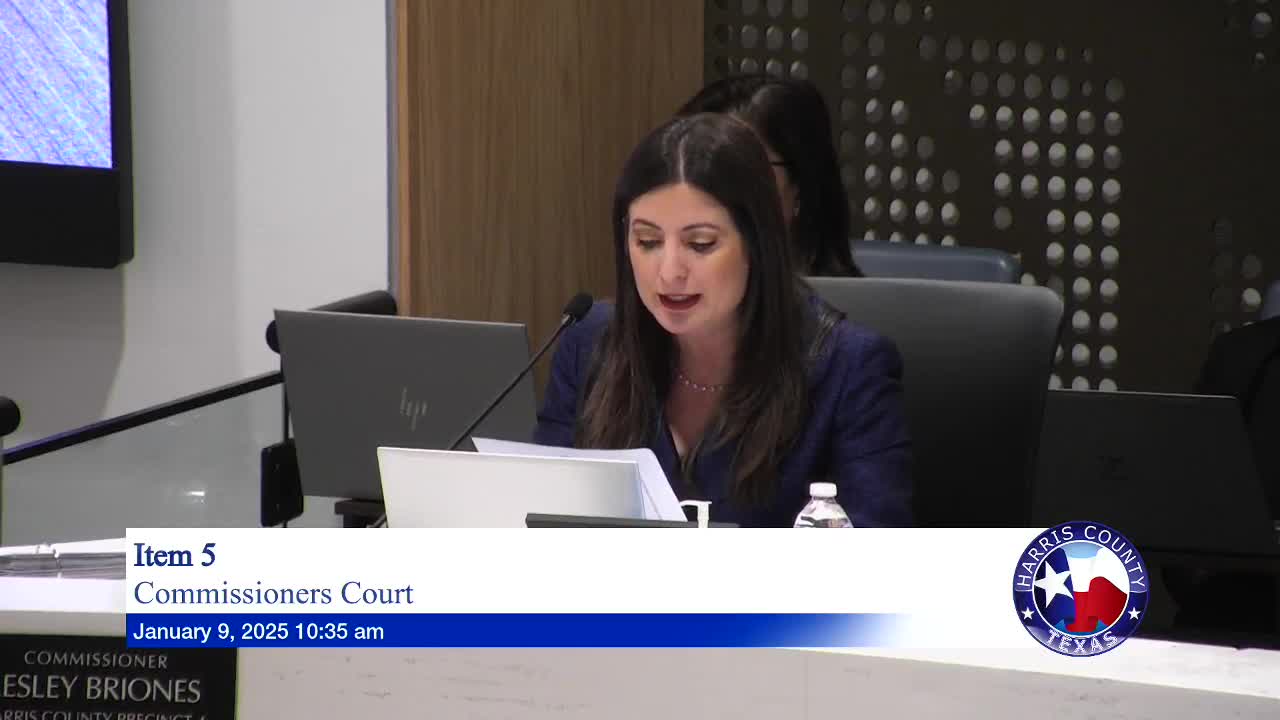
Harris County marks Human Trafficking Awareness Day, approves gates along Bissonnet corridor to reduce recruitment of children
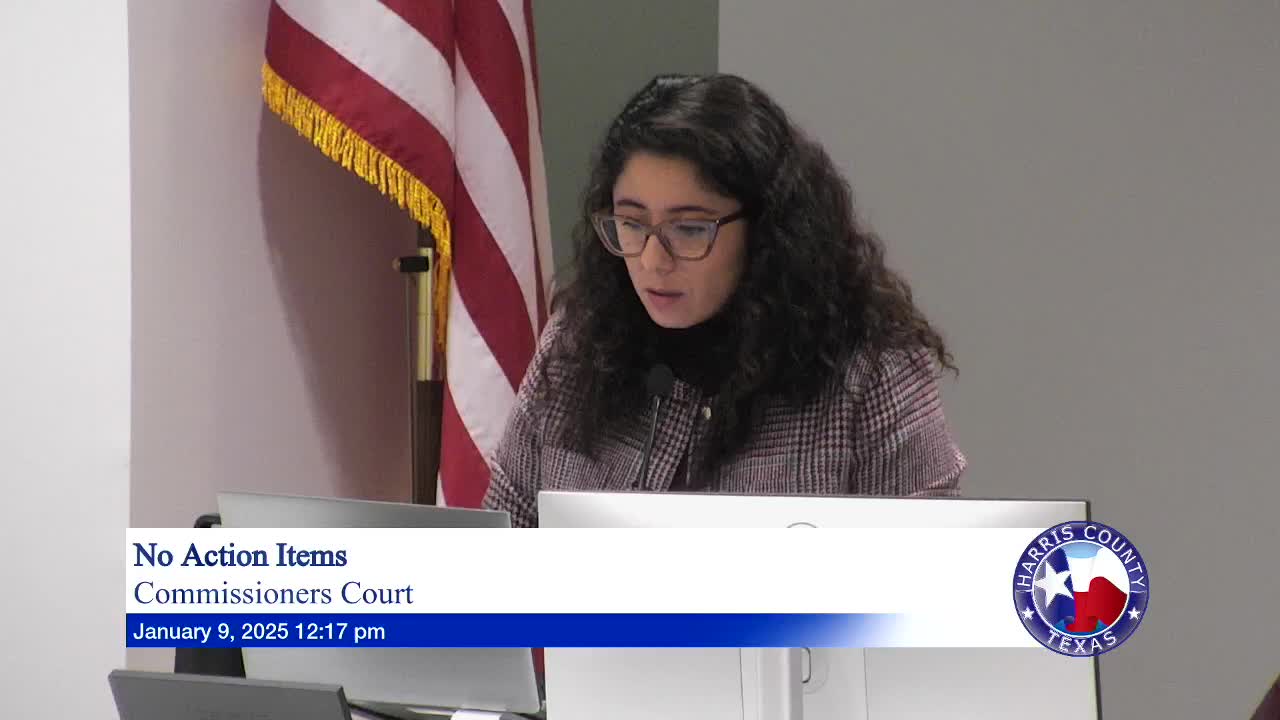
Harris County to bring HEART mobile crisis response program in-house
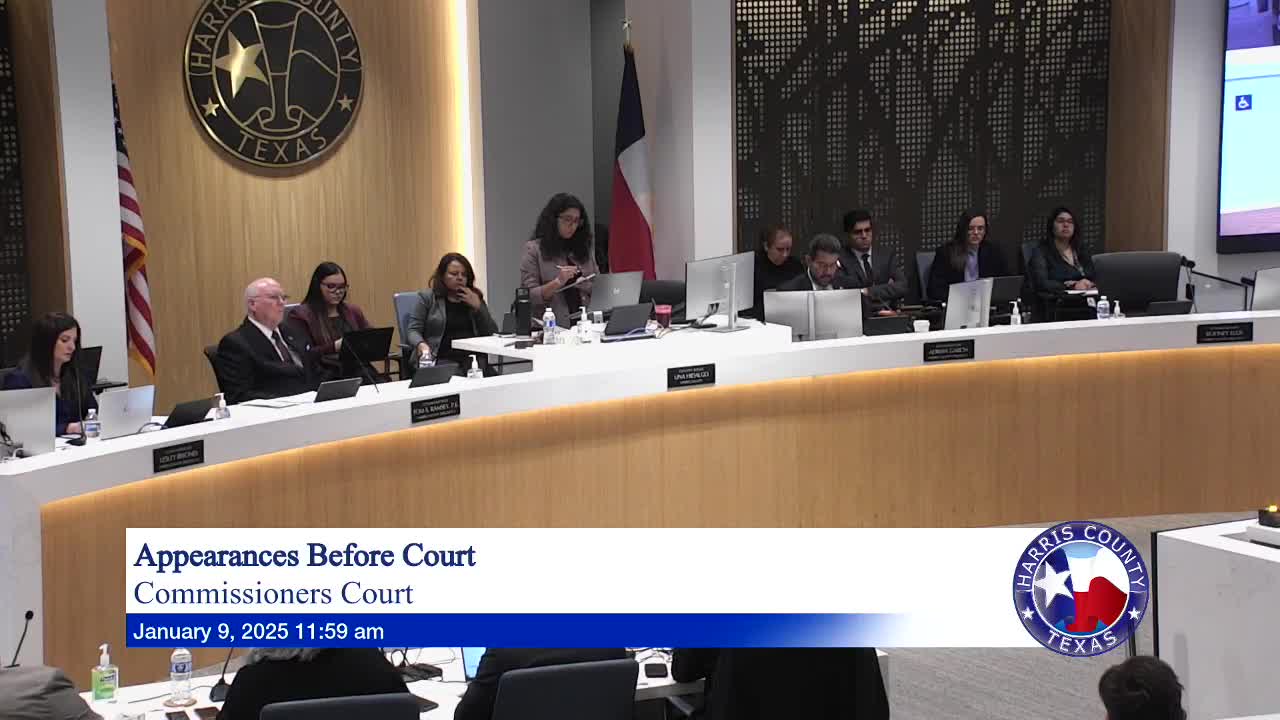
Parents and providers press Commissioners Court over Early Reach contract changes for Little Explorers Academy
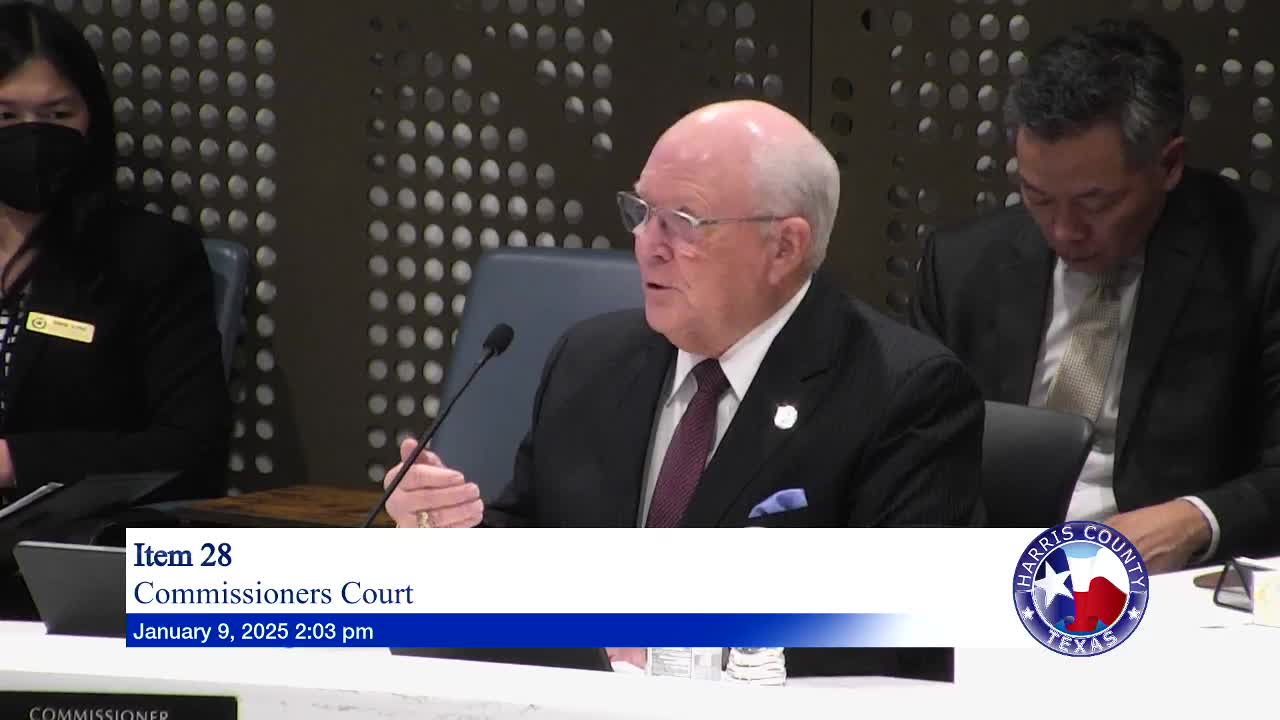
Commissioners approve one-time retention incentive for Precinct 4 employees over dissent on precedent
